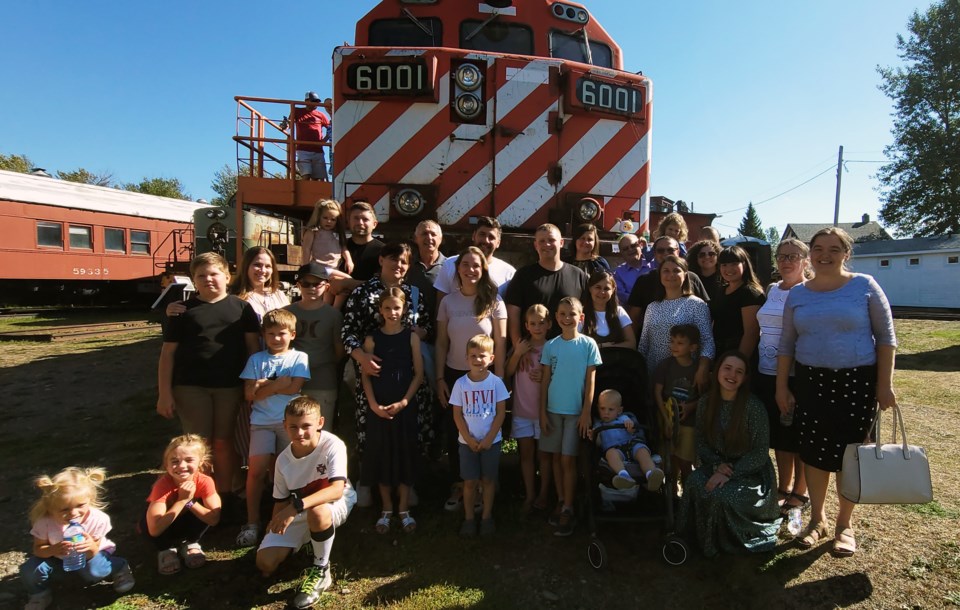In the two years since the Russo-Ukrainian War began, Prince George Share Hope has helped 347 displaced Ukrainians from 136 families get settled in northern B.C.
Canada’s open-door policy that has provided settlement supports, exemptions and work visas for Ukrainian refugees is coming to an end with the expiry of the Canada-Ukraine Authorization for Emergency Travel (CUAET) agreement on Saturday.
Share Hope and the people behind the volunteer organization fully expect that will bring the flow of new arrivals from Ukraine to a virtual standstill. That has shifted the focus of the organization away from finding new arrivals housing and furnishings, schools, daycares and medical services, to helping those who already here learn English, find jobs and receive mental health support.
“We’ve applied to grants to other agencies and we hope we are successful and that’s how we plan to continue to help these folks,” Dick Mynen, Share Hope fundraising/donations director, said. He is part of a delegation that on Monday obtained city council’s approval to seek more funding to pay for language services and hire professional employment services.
“The need is overwhelming," he added.
"We recognize we have 300 people we still need to help. Their journey is not over just because they came here and we helped them get an apartment, we need to help them navigate their new life here.”
Many of the more recent arrivals to Prince George are from eastern Ukraine, where English is less commonly spoken and they face larger hurdles learning the language, especially the older generation. The language barrier has affected their ability to find jobs that match their training and experience.
“We’ve got people who are finding it really challenging to find a job,” Mynen said. “They’re older and learning English is slower and more difficult. Especially for the guys sometimes, they just want to work so hard and they’re focusing on the job and not the need to learn English. In Europe, you can get a job as a foreign-speaking person much easier than in Prince George.”
More English teachers are required, especially considering language classes at the College of New Caledonia and Immigrant and Multicultural Services Society are not available in the summer months.
Mynen said finding an employment coordinator to work with the Ukrainians will help them navigate the system and find jobs sooner. He said WorkBC has been helpful but due to high demand clients are having to wait a full month to get help from an employment agency.
Share Hope is working with Oasis Settlement Services to find more English teachers and provide orientation classes to newcomers that will smooth the adjustment to Canadian life. The Ukrainians that are here are safe from the war but live with the fear of what’s happening to their country and loved ones they left behind as the war continues and that creates the need for mental health supports that are also in short supply.
Some of the Ukrainian families are still planning on bringing relatives to the city but it will be harder for those individuals to make a life for themselves with CUAET coming to an end. As of April 1st, visits to Canada will be limited to six months and work permits won’t be received at the point of entry and can only be obtained if they meet general requirements.
In February there were 19 new arrivals to the city and 30 are expected before the end of March. As of March 12 there were still 268 displaced Ukrainians in the city and 306 across north central B.C. Of the 42 who left Prince George, 34 moved to other Canadian cities and just eight returned to Ukraine.
In 2023, Share Hope provided monthly financial support to 13 families, averaging $1,500 per month per family.
“We might have to help them get an apartment once in a while, but not to the degree that we’ve been doing it,” Eva Gillis,Share Hope chair, said. ”The people we’ve asked to be their hosts to help them settle, those people are going to move to helping the ones that have been here for a while. My energy has now changed to helping the ones that are here continue to learn English and help them with the mental health side of things and just create events to keep them together.”
Last summer, Share Hope and the Catholic church sponsored 180 Ukrainians to come to Sowchea Bay on Stuart Lake near Fort St. James for an overnight camp. A barbecue at the Central BC Railway and Forestry Museum in September was also well-attended and Gillis said Share Hope will continue to look for other events to help them celebrate their culture.
For more information on how to help visit the Prince George For Ukraine website.



